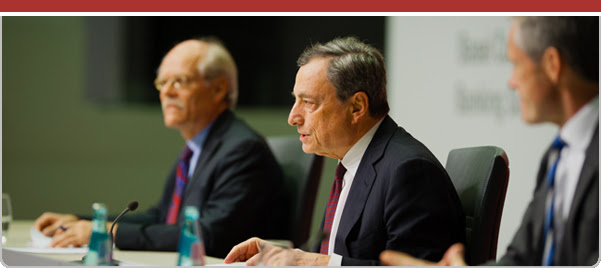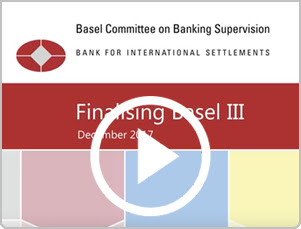The Express (UK) runs this article which at first glance sounds like the Bank of England might be on the verge of issuing a central bank digital currency. This something we have covered here extensively so the article is of interest.
However, when you look into the details in this article, it becomes clear that the BOE is not going to do anything like this any time soon. Below are a couple of quotes from the article and then a few added comments. (see added note below for latest update on this - BOE will not move forward with a central bank digital currency)
------------------------------------------------------------------------------------------------------------------
"The Bank of England is investigating the possibility of introducing a bitcoin-style digital currency linked to sterling, according to reports.
A new crypto-currency could be set up as early as 2018 and would transform the banking industry in Britain – possibly ending the need for high street banks.
A research unit at the Bank of England was set up in February 2015 to look into the possibility of a sterling-linked crypto-currency and a spokesman told the Telegraph it could report back within the next 12 months."
. . . .
"Despite looking into the possibility of launching a central-bank issued cryptocurrency, Dr Carney (BOE Governor) warned there could be financial stability risks if such an approach were rolled out across the whole economy through a cryptocurrency intended for the general public."
. . . .
“You (could) create a situation where you can have an instantaneous (bank) run. So as soon as there were any concern, people can switch in their account at the Bank of England,” Carney said.
-------------------------------------------------------------------------------------------------------------------------------------
My added comments: I will just list a few key points to consider on this topic below:
- please note that the article says it will 12 months before a research unit of the BOE "reports back" on this issue. That is not something about to actually be implemented. They say it will take another 12 months just to report back.
- BOE Governor Mark Carney repeats the concerns he and other central banks have about even doing this at all. Fed Governor Quarles recently said somewhat the same thing and indicated the Fed is in no hurry to do anything with a central bank digital currency. He talked about changes like this taking decades to unfold.
- please note the comment by Governor Carney that if central banks setup digital currencies that the public can own directly with an account at the central bank, it could setup the potential for "an instantaneous bank run" in a crisis where everyone tries to move their money to that account that would be directly backed by the central bank.
My own view on this is that all we seeing is a lot of articles trying to capitalize on the Bitcoin craze and trying to imply that major central banks are ready to counter this rise in Bitcoin interest by suddenly offering up their own versions of a digital currency. The direct input I get from people who work on this every day in the real world suggests otherwise. For one thing, this not something you can "suddenly" do in the real world.
I want to repeat what I have stated here many times. I have zero evidence that anything like this is about to happen any time soon based on direct input from experts I view as extremely credible. While this idea continues to be studied at central banks and the IMF, none of these entities have any kind of actual real world tested system they could actually implement at this time as far as I know. The only payments system in the world that has been able to implement a blockchain based ledger that could actually function inside the existing banking and central banking system (connect into it) that I am aware of is the one IBM announced earlier this year in partneship with KlickEx and Stellar.
A central bank would have to have access to a functioning system like that one to actually implement this. I am not aware of any major central bank (or the IMF) announcing they have such a real world tested functioning system at this time. The best information I have at this time is that we might see a central bank such as Singapore test a central bank digital currency sometime in 2018 perhaps followed by some other smaller central banks. I don't believe any major central bank would move forward with this idea until they have a chance to observe it tested in the real world somewhere first. I will say that IBM and KlickEx can point to real world testing by KlickEx in the South Pacific for their system.
So, I doubt the BOE will implement a central bank digital currency in 2018. 2019 is the earliest I can imagine that really happening if they even to decide to implement one at all. There are many concerns such as the one Governor Carney mentions above that have to be resolved. If Bitcoin takes a huge dive in price in 2018 it would not surprise me to see this whole topic disappear as quickly as it has arisen in the media. Central banks could easily just put it all on the back shelf as well.
I would not hold my breath on the BOE issuing a central bank digital currency any time soon. China may be more likely to show up with one in 2018 than the BOE.
------------------------------------------------------------------------------------------------------------------------------------
Added note: After I wrote the above post, this article appeared stating that the BOE has decided not to go forward with implementation of a central bank "cryptocurrency" as the article puts it:
"The Bank of England has decided it will not launch its own cryptocurrency due to its possible impact on the financial system, according to FT Advisor. The bank began researching cryptocurrencies in 2015 and was considering launching its own cryptocurrency."
I decided not to delete this post as originally written but to leave it up as it very well illustrates what we have been trying to report here recently. That being that we should take all these articles about central bank digital currencies and blockchains with a grain of salt (Bank of Canada lukewarm on a CBDC). I do have information that suggests that we could see a central bank digital currency show up soon in Singapore. However, these major central banks like the BOE and the US Fed seem to have cooled off on the idea at this time as this new article reports. Original article on this is here on FT Adviser.






